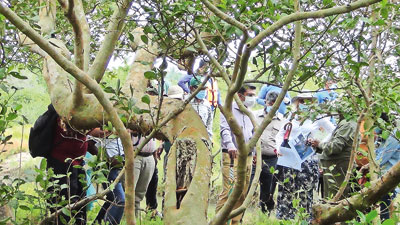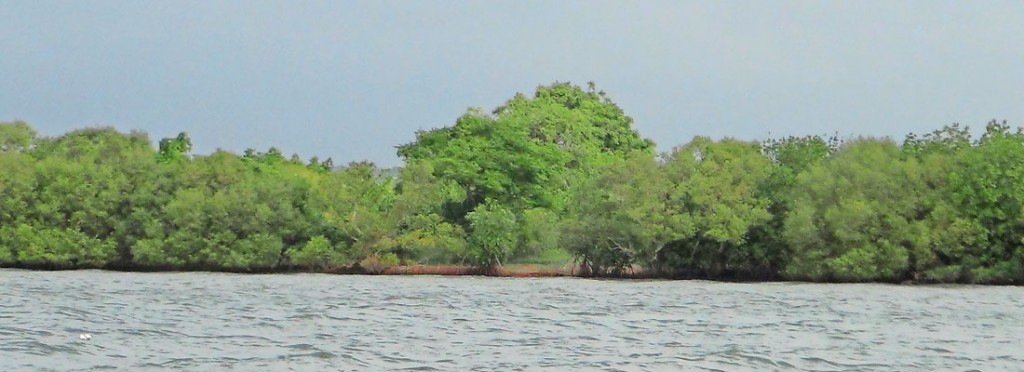News
Lanka leads save-mangroves global initiative; Britain steps in to prop up local campaign
If there is one area in environmental conservation Sri Lanka is showing global leadership in, it’s wetland conservation.
For three years, the country has led the ‘Mangrove Ecosystems and Livelihoods Action Group’ (MELAG) in an effort to create a blueprint for the world on how to protect and sustainably use this vital coastal vegetation. These efforts are drawing international attention and praise.
Other MELAG members are Australia, Bangladesh, Bahamas, Jamaica, Kenya, Maldives, Nigeria, Pakistan, Trinidad & Tobago, Britain and Vanuatu. The group was set up under the Commonwealth Blue Charter, an agreement signed in 2018 by all 54 Commonwealth nations. Fourteen countries stepped forward to champion ten themes including coral reef protection and sustainable coast fisheries. Sri Lanka chose mangroves ecosystems and livelihoods.

Experts on a study tour: Sri Lanka has 21 true mangrove species, almost one-third of the world’s diversity Pix by Hiran Priyankara Jayasinghe
The country has 21 true mangrove species, almost one-third of the world’s diversity. However, at 19,849 hectares, it is only 0.23 percent of total land area. Sri Lanka is, therefore, taking significant measures to restore and conserve mangroves, including by declaring them as conservation and reserved forests.
Sri Lanka has already formulated a national policy on conservation and sustainable use of mangrove ecosystems. There are also guidelines for a multi-party task force and expert group involving government officials, academics, NGOs and private sector. The Department of Forest Conservation, Sri Lanka Navy and local coastal communities are also closely involved.
The focal point for MELAG in Sri Lanka is the Ocean Affairs, Environment and Climate Change Division of the Foreign Ministry, together with the Biodiversity Secretariat of the Environment Ministry. In a recent development, the British High Commission has taken stewardship of a plot of mangroves in the Pubudugama, Puttalam, so its staff could plant and maintain the plants in a unique “caretaker programme”.
“This was suggested as the UK is a member of MELAG but has no mangroves,” said an information note from the Foreign Ministry. “Through this stewardship, they could actively and practically be responsible for maintenance of mangroves in Sri Lanka. It could also become a family activity for High Commission staff, perhaps involving their children who one day could visit the site to see ‘their’ mangroves.”
 The first mangrove caretaker programme, therefore, was launched on January 20 with the participation of Sarah Hulton, British High Commissioner to Sri Lanka. It is a follow-up to the first science-based replanting of mangrove saplings at Pubudugama in July last year, when the proposal was raised with the British High Commission.
The first mangrove caretaker programme, therefore, was launched on January 20 with the participation of Sarah Hulton, British High Commissioner to Sri Lanka. It is a follow-up to the first science-based replanting of mangrove saplings at Pubudugama in July last year, when the proposal was raised with the British High Commission.
Another highlight of Sri Lanka’s conservation efforts was when Commonwealth Secretary-General Patricia Scotland planted a mangrove plant at the Koggala lagoon in November 2019, on the sidelines of the Commonwealth Law Ministers’ Meeting. She also visited a mangrove museum (another world first) established by an NGO.
MELAG will continue to share best practices, analyse policy and practices in member countries and carry out other mangrove-related work, the Foreign Ministry said. It is also considering opportunity for regional collaborations and on-ground support for conservation and mangrove restoration.


